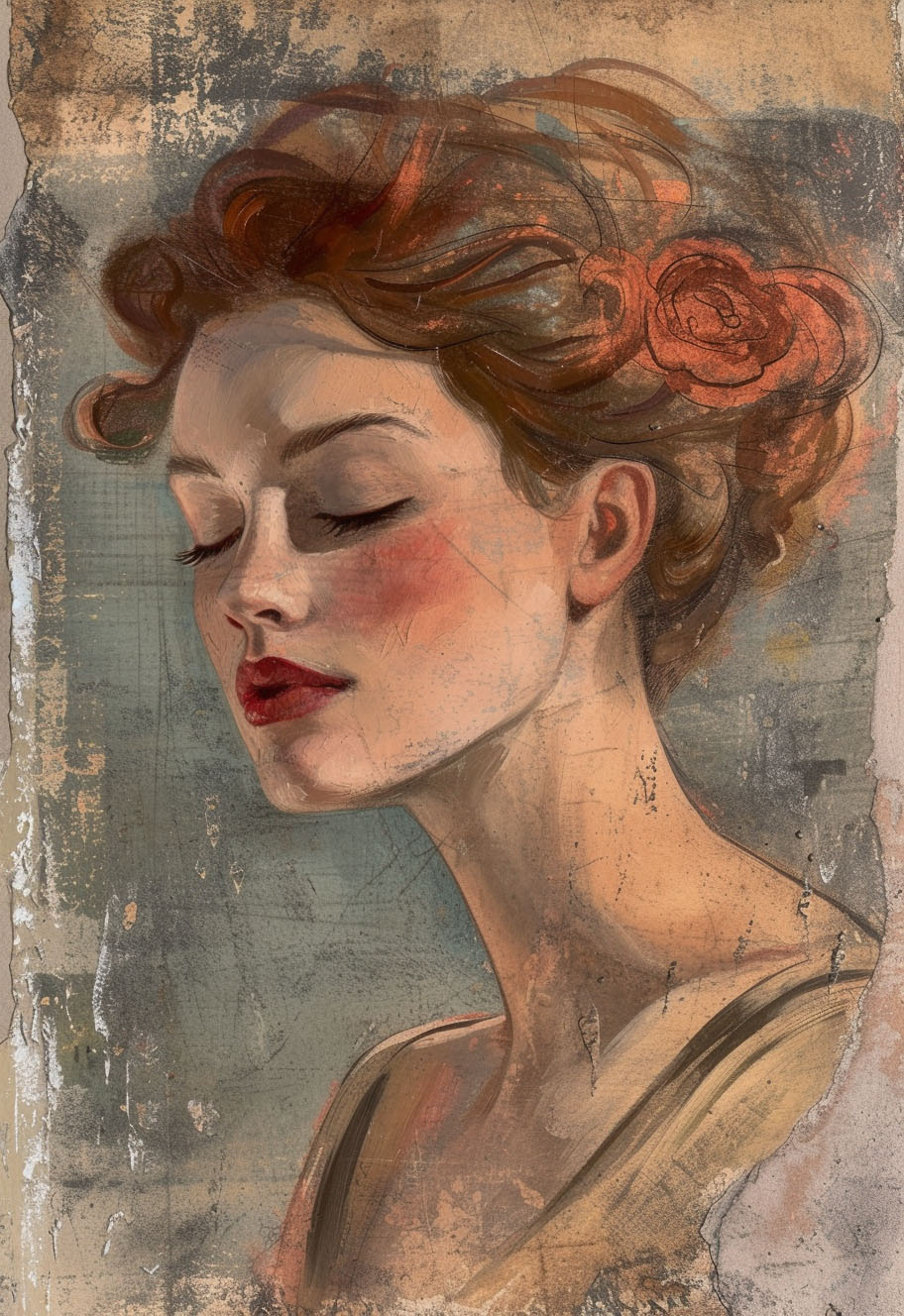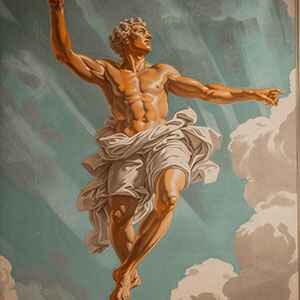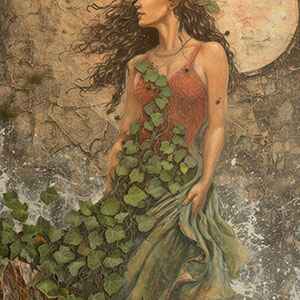
Parentage: Dione is variously described as the daughter of Uranus (the sky) and Gaea (the earth) or as an Oceanid, one of the daughters of Oceanus and Tethys.
Wife of Zeus: In some accounts, Dione is considered the wife of Zeus, the king of the gods. Together, they are said to be the parents of Aphrodite, the goddess of love and beauty. However, other traditions depict Aphrodite as having been born from the sea foam (the sea-foam myth), without a mother.
Mother of Aphrodite: The most common association with Dione is her role as the mother of Aphrodite. In this version of the myth, Dione is a mother goddess, and her union with Zeus produces the beautiful and enchanting Aphrodite.
Dodona Oracle: In some traditions, Dione is linked to the oracle of Dodona, one of the oldest and most revered oracles in ancient Greece. The sacred oak trees at Dodona were believed to be endowed with the power of prophecy, and priests interpreted the rustling of leaves to provide guidance.
Dionean Festivals: Dione is sometimes associated with festivals and rituals in her honor. These celebrations may have included rites related to fertility, femininity, and motherhood.
Cultural Influence: While Dione is not as prominently featured in mythology as some other goddesses, her role as the mother of Aphrodite and her connection to the Dodona oracle contribute to her cultural significance.
Literary References: Dione is mentioned in various ancient texts, including Hesiod's "Theogony" and Homer's "Iliad."
Associations with Other Deities: Dione's familial connections extend to other major figures in Greek mythology, such as being a sibling to Oceanus and Tethys and, in some traditions, being related to the Titans.
Roman Equivalent: In Roman mythology, Dione is sometimes identified with the goddess Venus, who is the Roman equivalent of Aphrodite.
While Dione's mythology is not as elaborately detailed as some other goddesses, her importance lies in her role as a mother figure and her association with the birth of Aphrodite, a goddess central to the Greek pantheon. Additionally, her link to the Dodona oracle adds depth to her character and cultural significance.
Immediate Family
Quick Facts
- Dione is associated with femininity and motherhood.
- She may be the wife of Zeus.
- Mother of Aphrodite.
- Linked to the oracle of Dodona.
- Possible associations with festivals related to fertility.
- Mentioned in Hesiod's "Theogony" and Homer's "Iliad."
- Familial connections with other major figures in Greek mythology.
- Identified with the Roman goddess Venus.
Further Reading
Art &
Architecture
Ancient Greek art and architecture, with its harmonious proportions and timeless elegance, continue to inspire awe and admiration millennia later.
Discover
Greek Mythology & Mythical Characters
Greek mythology, a rich tapestry of gods, heroes, and mythical creatures, captivates the imagination with its tales of love, betrayal, and epic adventures that delve into the depths of the human psyche.
Discover
Ancient Greek History
Ancient Greek history, marked by remarkable achievements in democracy, philosophy, and warfare, shaped the foundation of Western civilization, leaving an indelible legacy of innovation and cultural influence that continues to resonate to this day.
Discover
Ancient Greek Olympics
The ancient Greek Olympics, held in Olympia every four years, celebrated athleticism, unity, and cultural pride, serving as a testament to the enduring spirit of competition and excellence that transcends time and borders.
Discover
Ancient Greek Wars
Ancient Greek wars, such as the Persian Wars and the Peloponnesian War, were pivotal conflicts that shaped the course of history, highlighting the struggle for power, independence, and the clash of civilizations in the ancient Mediterranean world.
Discover
Ancient Greek Culture and Society
Ancient Greek culture and society, characterized by its emphasis on art, philosophy, and civic engagement, fostered a vibrant intellectual and social landscape where innovation flourished, democracy thrived, and the pursuit of knowledge and excellence was celebrated as fundamental values of civilized life.
Discover

